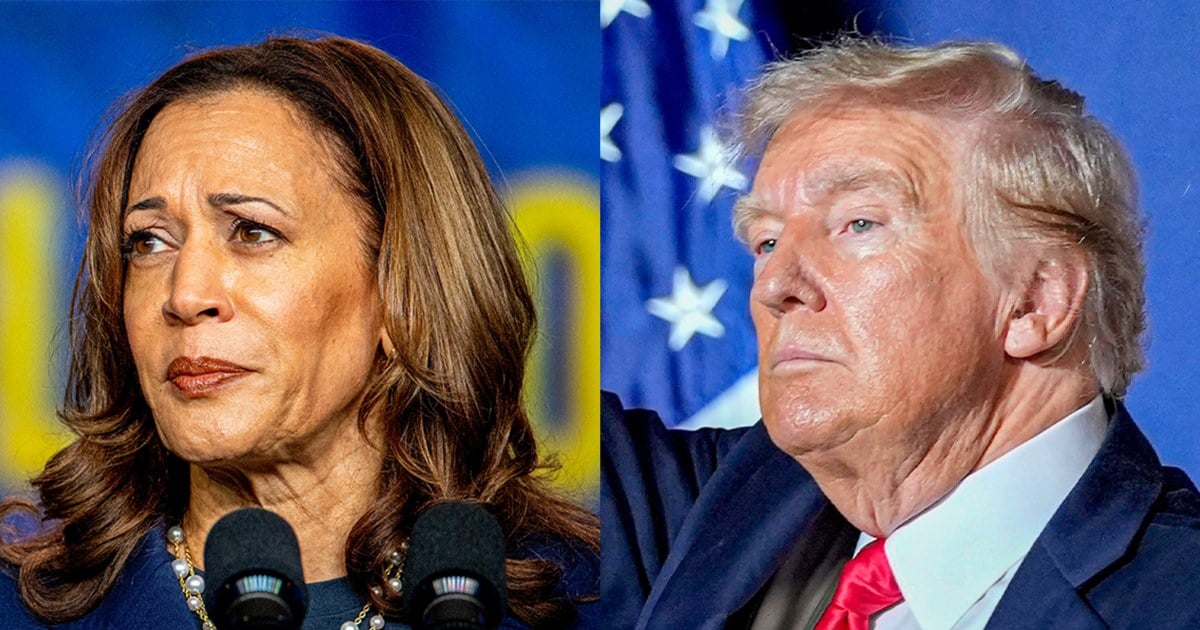After Donald Trump told journalists on Wednesday that his presidential opponent Kamala Harris “turned Black” for political gain, Trump’s comments have impacted the way many multirace voters are thinking about the two candidates.
“She was only promoting Indian heritage,” the former president said during an interview at the National Association of Black Journalists convention last week. “I didn’t know she was Black until a number of years ago, when she happened to turn Black, and now she wants to be known as Black.”
“Is she Indian or is she Black?” he asked.
She’s both.
Harris, whose mother was Indian and her father is Jamaican, would make history if she is elected president. She would be both the first female president and the first Asian American president.
Multiracial American voters say they have heard similar derogatory remarks about their identities their whole lives. Some identify with Harris’ politics more than others but, overall, they told NBC News that Trump’s comments will not go unnoticed.



In your original comment that I responded to, it sounded like you’re making the case that mixed and non-white people should start asking white people those questions as a matter of policy, and not just those times when a specific white person asked first. That’s why I was curious what you thought the effect would be.
That being said, even if you meant that people should only return the question if the white person asked first, that’s something which would just be normal and instinctual for most folks, I would think? Like if someone I’m getting to know asked me my favorite color, I’d probably follow up with the same question after I gave them my answer. So it seemed a bit weird to see a call to action to do something that I would have otherwise thought most people would already be doing (at least in my experience, which I certainly am open to the possibility that my experience is atypical of what racial minorities endure).
And although I am white, and thus I’m certainly coming from a place of privilege, I am a minority (lgbt) and have had my fair share of experience with inappropriate and/or weaponized questions, so I’m not coming from this from a place of complete naivety. I’m certainly aware that sometimes people will ask questions like “are you the boy or the girl in the relationship” from a place of authentic and unintentional ignorance, but that it’s quite often coming from people whose intent is to be derogatory.